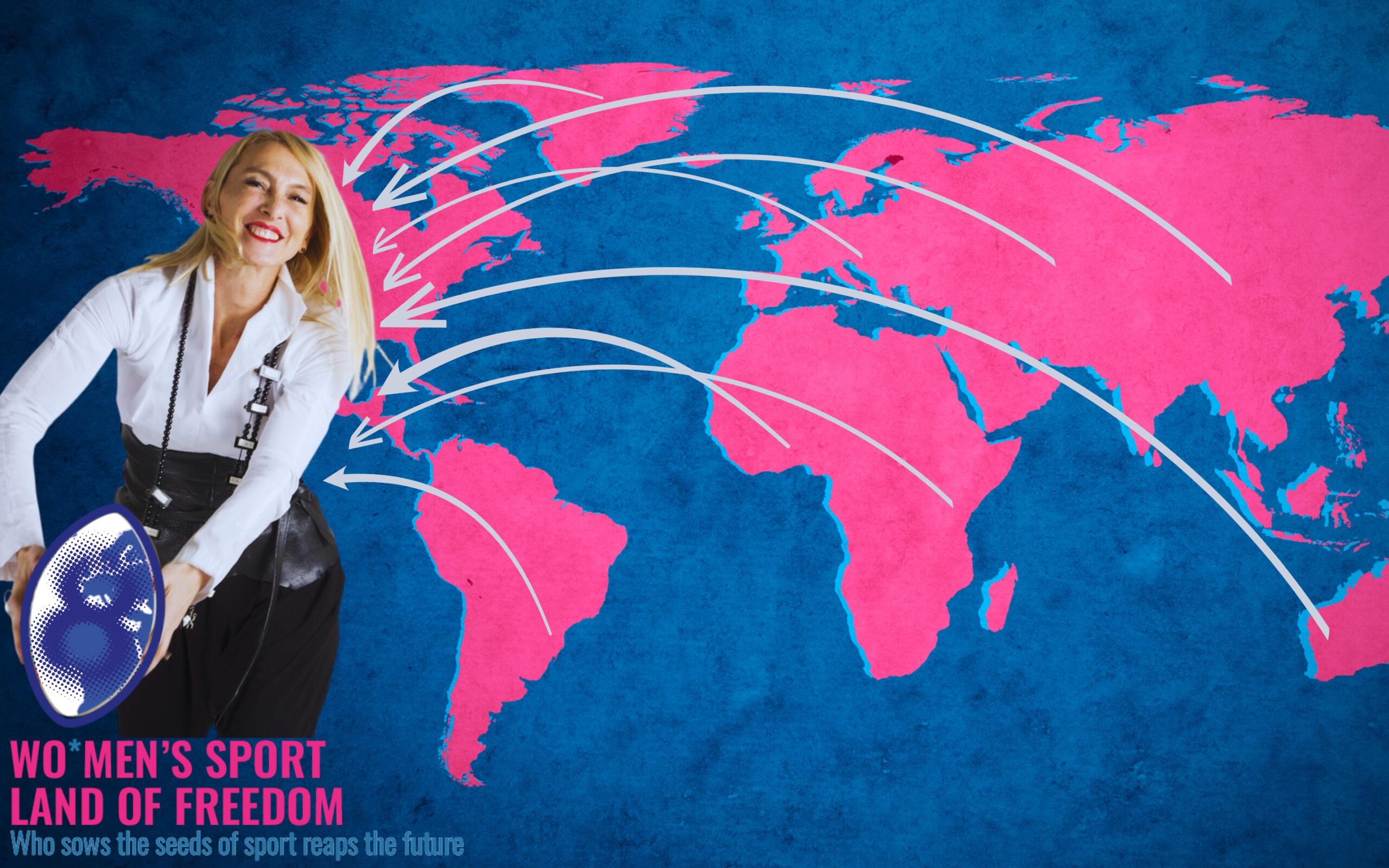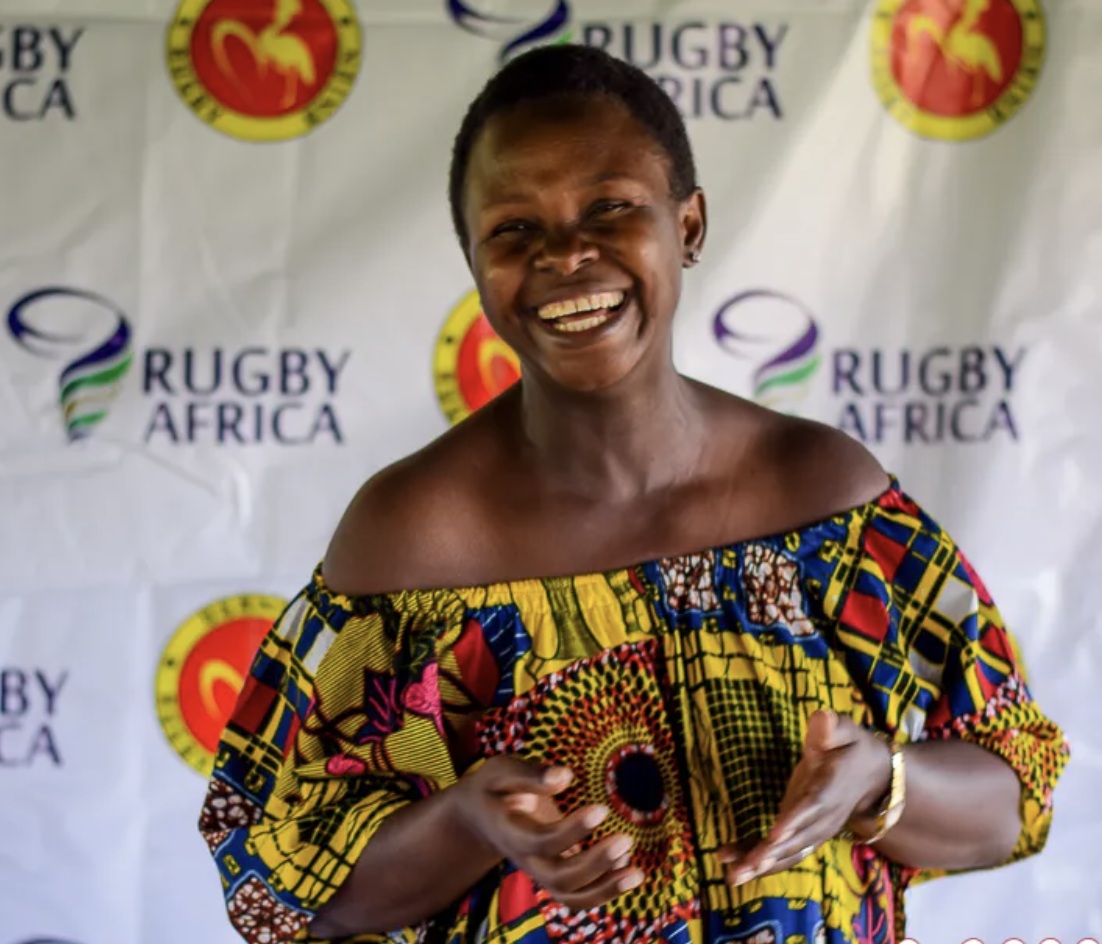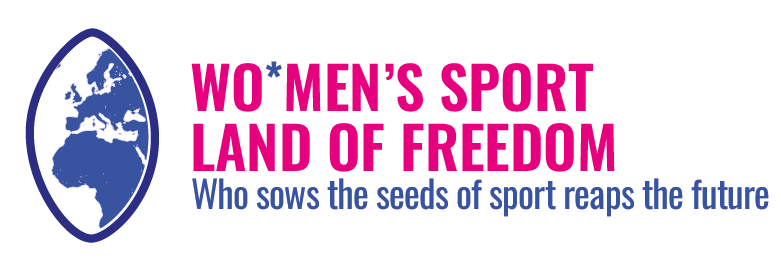
UGANDA: FIRST RULE: TRY – SECOND RULE: TRY AGAIN!
“First rule: try – second rule: try AGAIN!”

Thanks to:
Regina Hellen Lunyolo
World Rugby Educator, Rugby Africa Women’s Rugby Advisory Committee Member
- The history of the women’s movement in Uganda
- Testimonials
- Reading time: 5 minutes
UGANDA - Find out more
Uganda is a republic in Eastern Africa, with about 45.9 million inhabitants in 2024 and a slight female majority. Women hold approximately 34% of the seats in the national parliament, bolstered by reserved seats for women at district level. Female participation in the labor market stands at around 76.5%, compared to 85.4% for men, indicating a noticeable gender gap. Women perform a significant share of unpaid domestic work: the average Ugandan woman spends about 9 hours a day on tasks such as cooking, fetching water, firewood, and caring for family members—substantially more than men, who work 8–10 hours total per day. Despite strong labor participation, women remain underrepresented in senior decision-making roles and continue to face economic vulnerabilities, especially within informal and agricultural sectors.
(SOURCE: Uganda Bureau of Statistics; Afrobarometer; World Bank Gender Data Portal; Wikipedia – Women in Uganda; Economy of Uganda; data.unwomen.org)
HISTORY OF THE COUNTRY
1. When did the women’s rugby movement start in your country and what is its history? How is rugby structured in your country?
Women’s Rugby in Uganda started in 2003 at Kyadondo rugby club under the mentorship of James Park (headmaster of Hillside High School and former rugby player with Halequins in Kenya. It started from a fitness group that evolved to include ladies coming together from different sporting codes like basketball, handball, cricket, hockey, football and athletics. Due to the limited numbers and lack of competitions, the ladies began off with the 7’s format where they be split into 2 or 3 groups and play games against each other every Saturday before the men’s games. Their first international match, a 92-0 victory over Rwanda in 2005, was a landmark event, playing under floodlights for the first time. Since then, the Lady Cranes have participated in various tournaments, including the Rugby World Cup Sevens in 2009. They have also competed in the Elgon Cup against Kenya and qualified for the Rugby Africa Women’s Cup in 2025.
Early Days (2005-2008):
The UWRA was established and the Lady Cranes team was formed, marking the beginning of organized women’s rugby in Uganda. They quickly established themselves as a force, defeating Rwanda in their first international match.
World Cup Qualification (2008-2009):
In 2008, the Lady Cranes qualified for the inaugural Rugby World Cup Sevens, a major achievement for Ugandan rugby. Their participation in the 2009 World Cup in Dubai was a significant milestone, despite not winning any matches.
Elgon Cup & Regional Competitions:
The Lady Cranes have also competed in the Elgon Cup against Kenya, a traditional rivalry in East African rugby, and other regional tournaments.
Continued Growth and Development:
In recent years, women’s rugby in Uganda has seen continued growth, with the Lady Cranes participating in the World Rugby Sevens Challenger Series and other tournaments. They have also secured promotion to the 2025 Rugby Africa Women’s Cup, demonstrating their rising status in African rugby.
We currently have 7 clubs participating in the premiership league and 9 teams participating in the championship regional league. Premiership league teams include
- Thunderbirds RFC (first and oldest rugby club) based at Kyadondo, also known as the home of Women’s rugby in Uganda,
- Black Pearl’s RFC based in Kampala
- Avengers RFC based in Entebbe
- Ewes RFC based at Makerere University
- Nile Rapids based in Jinja
- Elgon Shewolves based in Mbale
- Black Panthers RFC based in Kampala
Championship regional clubs include:
- Ladyswans based in Entebbe
- Ladypacers based in Kisubi
- Eagles based in Mbale
- Walukuba Titans based in Jinja
- Njeru cyclones based in Jinja
- Kitgum queens based in Kitgum
- Nile Leopardess based in Arua
- Lira Latrix based in Lira
9. Gulu Sprinters based in Gulu
2. Do you think playing rugby has a social impact for a woman in your country?
Yes
- Community and Social Cohesion:
– Rugby brings people from different backgrounds together, creating a sense of unity and solidarity.
-Matches can attract large crowds, fostering a shared experience and excitement, as seen in Uganda with the success of attracting fans to various match venues.
-Rugby can be a unifying force, transcending social and economic barriers.
- Personal Development:
Rugby teaches valuable life lessons like teamwork, discipline, and perseverance.
It can boost self-esteem, confidence, and leadership skills.
Rugby can help young people develop social skills and make lifelong friendships.
- Social Change and Empowerment:
Rugby can be used as a tool to raise awareness about important social issues.
Organizations like Rugby Tackling Life (RTL) integrate rugby with life skills, educating girls and young women on topics like sexual and reproductive health and encouraging them to pursue education. RTL also works to empower women by providing them with leadership opportunities and a platform to share their experiences and perspectives.
Swans Sports Club creates awareness against societal challenges such as cancer and gender based violence by conducting the Swans Beach Touch Rugby against cancer every October and School related gender based violence in schools during the UN Women 16 days against GBV campaign respectively.
- Impact Beyond the Pitch:
Rugby can create economic opportunities, such as through tourism and local businesses.
Rugby Afrique has also been actively involved in supporting charitable causes, including raising funds for an orphanage home.
Rugby can be a source of pride and joy, contributing to a positive image of Uganda on the world stage.
3. In your opinion, what can rugby give to women in your country?
- Physical and Mental Health:
– Improved physical fitness: Rugby is a physically demanding sport that improves cardiovascular health, strength, and endurance.
– Stress reduction: The physical activity and teamwork involved in rugby can help reduce stress and anxiety.
– Positive body image: Engaging in sports like rugby can boost self-esteem and lead to a more positive body image.
- Personal Development:
– Increased self-confidence: Rugby teaches women to trust their abilities, overcome challenges, and make quick decisions, leading to a boost in self-confidence.
– Development of social skills: Teamwork, communication, and respect are essential in rugby, fostering the development of strong social skills.
– Leadership skills: Rugby can provide opportunities for women to take on leadership roles on and off the field, developing their leadership abilities.
– Sense of empowerment: Participation in rugby can empower women, allowing them to challenge societal norms and pursue their goals.
– Discpline: Rugby can teach valuable life lessons such as time management, discipline, and respecting authority, which can be applied to various aspects of life
- Social and Community Benefits:
– Strong social connections: Rugby creates a strong sense of community and provides opportunities to make lifelong friends.
– Increased access to education and opportunities: Rugby programs can encourage and support girls to stay in school and provide them with health education and career guidance
- Empowerment through sport:
Rugby provides a platform for women to challenge societal norms and gain recognition and support.
In Uganda, rugby is more than just a sport; it’s a tool for empowering women and girls, promoting positive social change, and developing future leaders.
JOURNEYS THROUGH RUGBY
Watch the video interview to Regina Hellen Lunyolo:
https://www.youtube.com/shorts/pgScrDqeY5A
